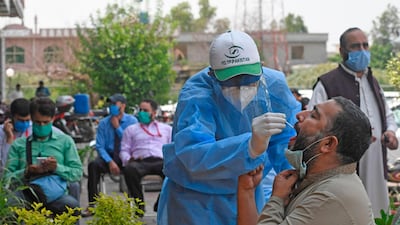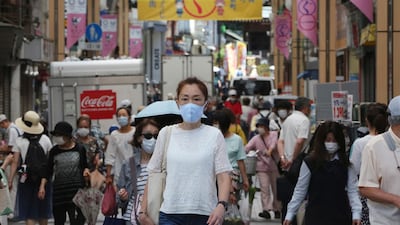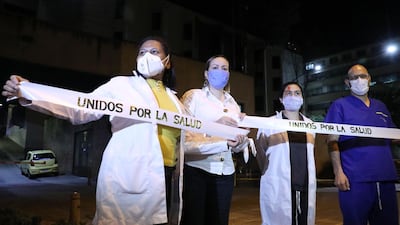Pakistan eased its coronavirus lockdown too early and should now impose intermittent fortnight-on-fortnight-off restrictions to manage the runaway spread of Covid-19, the World Health Organisation has said.
The UN's health body warned cases were still growing exponentially in the world's sixth most populous nation, while disease tracking was weak and the health system was unprepared.
Deaths have begun to spike in the country, with doctors warning hospital wards are approaching their limits after a rush of cases traced back to socialising at Ramadan and Eid.
A leaked June 7 letter from Palitha Mahipala, WHO chief in Pakistan, warned the country's provincial health ministers that new intermittent lockdown cycles were a priority.
Prime minister Imran Khan has repeatedly said a lockdown cannot solve Pakistan's problems because the country has so many daily labourers who will starve without work. Precautions have largely ended in the country.
The WHO appeared to offer a compromise in the letter, suggesting a two-week pattern would stop the health system collapsing under the weight of new cases, while allowing economic activity to continue in a country where one-in-four are already in poverty.
“WHO strongly recommends that the government adapts the two-weeks-on and two-weeks-off strategy as it offers the smallest curve,” Mr Mahipala wrote.
Some 2,255 Pakistanis have died so far among more than 113,000 confirmed cases. Daily tallies of both deaths and infections have risen sharply recently, with a record number of cases on Wednesday. Low testing rates and patchy death registrations mean the counts are likely to significantly underestimate the true toll. Some hospitals have begun to turn patients away.
The letter also appeared to criticise Pakistan's easing of restrictions. The country has wound back limits on gatherings, business and travel and by the end of Ramadan, streets and markets were thronged. Spread of the disease has increased sharply since then. Mr Mahipala said countries should meet six conditions to ensure they were on top of their outbreaks before easing conditions.
"As of today, Pakistan does not meet any of the pre-requisite conditions for opening the lockdown", the letter said.
Mr Khan and his ministers have asked Pakistanis to abide by distancing guidance and wearing masks even though lockdown has ended. Few appear to have taken notice and the letter acknowledged that “the population is not ready to adapt to change in behaviour”.
Pakistan defended its approach, saying it was trying to pursue a “holistic approach” balancing health and the economy.
Dr Zafar Mirza, Mr Khan's special adviser on health, said the country had made the “best sovereign decisions in the best interest of our people”.
He went on: “We have to make tough policy choices to strike a balance between lives and livelihoods.”
Yasmin Rashid, Punjab's health minister, said the provincial government had already given "orders to take strict action against those violating" virus guidelines.
International health officials fear the epicentre of the pandemic could shift to South Asia. Hospitals in India are already at breaking point, with weeks expected before the peak.



















